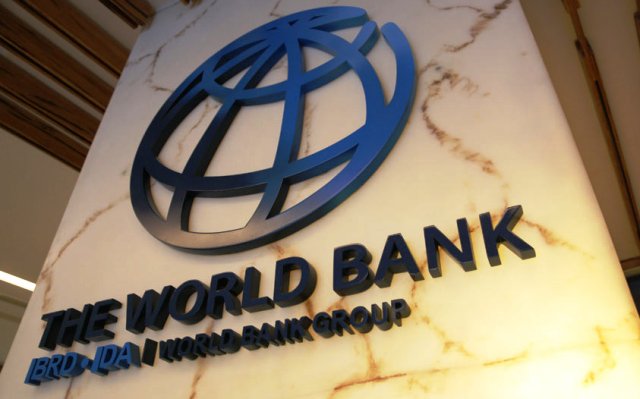The World Bank has said that Nigeria’s oil production declined in 2021 due to a lack of maintenance and the loss of infrastructure efficiency.
It added that Nigeria was yet to benefit from increasing oil prices as a result of declining oil production and fuel subsidy.
The Washington-based bank said this in a new report titled ‘Migration and Development Brief titled ‘A War in a Pandemic: Implications of the Ukraine crisis and COVID-19 on the global governance of migration and remittance flows.
The report read in part, “Nigeria has not been able to benefit from higher oil prices to date as: oil production declined in 2021 due to lack of maintenance and loss of infrastructure efficiency; and domestic petrol prices remain fixed—increasing the cost of the ‘Premium Motor Spirit’ subsidy, a large and growing fiscal burden.”
In a different World Bank report, titled ‘Global Flaring and Venting Regulations: 28 Case Studies from Around the World’, it was disclosed that within almost a decade, oil production declined by 40 per cent in Nigeria.
“Nigeria’s oil production fell by nearly 40 per cent from 2012 to 2021. During this period, the flaring intensity barely changed. The volume of gas flared declined broadly in proportion to oil production, falling 25 per cent, from 9.6 bcm to 6.6 bcm. There were 166 individual flare sites in the last flare count, conducted in 2019,” the report read.
The PUNCH had reported that Nigeria has the largest shortfall among oil-producing countries as a result of sabotage within the oil production system and other factors, such as low investments and the pandemic, according to the World Bank.
According to the bank, Nigeria has a shortfall of 500,000 barrels per day, while Angola and Russia both have a shortfall of 300,000 barrels per day.
The bank said, “At present, the largest shortfalls are in Nigeria (0.5 mb/d) and Angola and Russia (each 0.3 mb/d). Production has been affected by a variety of temporary factors including maintenance (Kazakhstan and Libya), protests (Kazakhstan), sabotage (Nigeria), and bad weather (Iraq, Libya).”
Earlier in April 2022, it was reported that the OPEC raised Nigeria’s oil production quota from the 1.735 million barrels per day target approved in April 2022 to a new target of 1.753 million barrels per day for May 2022.
OPEC’s increased oil production quota for Nigeria came as the Federal Government called for an inclusive energy transition that would be beneficial to not just Nigeria but to other countries in Africa.
In a PUNCH report in April 2022, it was disclosed that Nigeria’s crude oil production crashed by 744,000 barrels in March 2021, according to figures released by the OPEC.
In OPEC Monthly Oil Market Report for April 2022, the organisation outlined the oil production volumes of its member nations and allies, as it revealed that the output from Nigeria dropped in March.
An analysis of the document by our correspondent showed that Nigeria’s oil production dropped from the 1.378 million barrels per day recorded in February 2021 to 1.354 million barrels per day in March, indicating a daily plunge of 24,000 barrels of crude oil.
This implies that for the 31 days in March, the country’s oil production dropped by a total of 744,000 barrels, despite the current financial crisis confronting the Nigerian economy.
Source Punch














